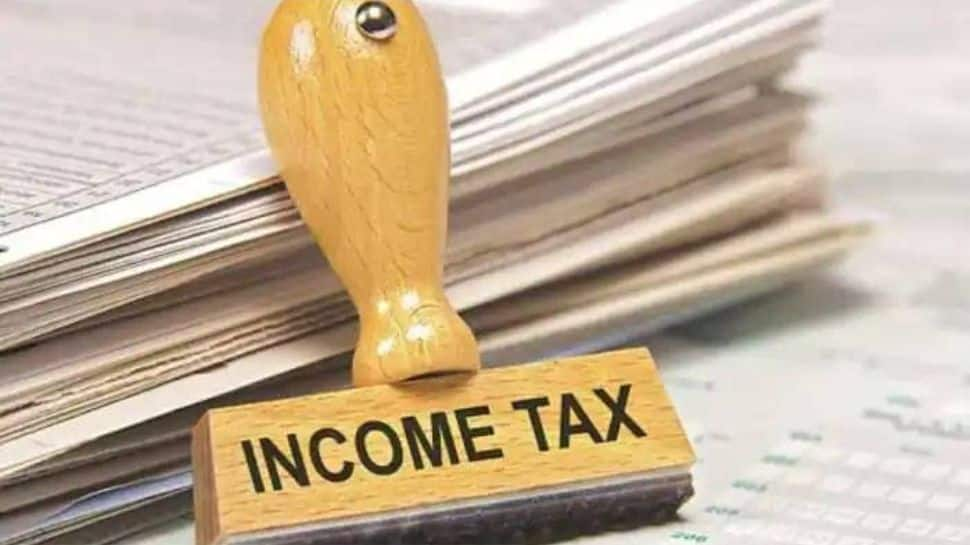Business
FAA announces flight reductions at 40 airports. Here’s where cuts are expected and what travelers need to know

A Republic Airways plane takes off near the air traffic control tower at Ronald Reagan Washington National Airport (DCA) in Arlington, Virginia, US, on Tuesday, Oct. 28, 2025.
Samuel Corum | Bloomberg | Getty Images
Airlines rushed to provide travelers updates this week after the Federal Aviation Administration said it would reduce flights across 40 airports as the longest government shutdown in history continues to drag on.
Many major airlines said they would waive cancellation fees for even their most basic tickets, which often come with penalties for changes.
Transportation Secretary Sean Duffy previously said he would reduce flight capacity by roughly 10%, affecting 3,500 to 4,000 flights daily.
On Thursday, the FAA formalized a list of affected airports and clarified the reductions would begin at 4% and slowly ramp up to 10% by Nov. 14. The reductions began Friday morning with more than 700 flight cancellations.
These are the airports that are expected to be impacted, including some of the country’s largest airports and major international hubs in Atlanta, Chicago, Dallas, Los Angeles and New York City.
Impacted airports:
- ANC – Anchorage International
- ATL – Hartsfield-Jackson Atlanta International
- BOS – Boston Logan International
- BWI – Baltimore/Washington International
- CLT – Charlotte Douglas International
- CVG – Cincinnati/Northern Kentucky International
- DAL – Dallas Love
- DCA – Ronald Reagan Washington National
- DEN – Denver International
- DFW – Dallas/Fort Worth International
- DTW – Detroit Metropolitan Wayne County
- EWR – Newark Liberty International
- FLL – Fort Lauderdale/Hollywood International
- HNL – Honolulu International
- HOU – Houston Hobby
- IAD – Washington Dulles International
- IAH – George Bush Houston Intercontinental
- IND – Indianapolis International
- JFK – New York John F. Kennedy International
- LAS – Las Vegas McCarran International
- LAX – Los Angeles International
- LGA – New York LaGuardia
- MCO – Orlando International
- MDW – Chicago Midway
- MEM – Memphis International
- MIA – Miami International
- MSP – Minneapolis/St. Paul International
- OAK – Oakland International
- ONT – Ontario International
- ORD – Chicago O’Hare International
- PDX – Portland International
- PHL – Philadelphia International
- PHX – Phoenix Sky Harbor International
- SAN – San Diego International
- SDF – Louisville International
- SEA – Seattle/Tacoma International
- SFO – San Francisco International
- SLC – Salt Lake City International
- TEB – Teterboro
- TPA – Tampa International
(The airport in Las Vegas was renamed the Harry Reid International Airport in 2021.)
On Wednesday, Duffy said the reduction was a “proactive” measure because of the delays and cancellations already occurring due to the shutdown. Air traffic controllers, who are considered essential employees required to work during a shutdown, have missed paychecks, and the FAA has said the closure has also raised concerns about already thin staffing among controllers.
Duffy said he expects more cancellations as a result of the reduction, which has no set end time.
“We thought 10% was the right number based on the pressure we were seeing,” Duffy added.
Earlier this week, Duffy told CNBC’s “Squawk Box” that he could “shut the whole airspace down” if the shutdown drags on.
FAA Administrator Bryan Bedford said Wednesday that additional measures may be implemented after the reduction, which he said he has never seen before in his time in the industry. The officials said they were planning to meet with airlines to discuss which flights would be cut.
Airline response
In a Wednesday memo to United Airlines employees, CEO Scott Kirby said the carrier will not be reducing long-haul international flying and hub-to-hub flying, instead reducing regional and domestic flights that do not fly between hubs.
The airline also offered all customers refunds even if their flights are not impacted. Kirby said that included “non-refundable tickets and those customers with basic economy tickets.”
On Thursday afternoon, the airline preemptively said it was going to cancel 4% of its flights from Friday through Sunday.
In a statement, Delta Air Lines said it expects to operate the “vast majority” of its flights as scheduled and will offer changes, cancellations or refunds for customers’ flights during the impacted period. Delta also said that would include basic economy fares, without penalty.
The airline added on Thursday afternoon that it will cancel flights a day in advance to allow customers enough time.
Frontier Airlines CEO Barry Biffle said he highly recommends travelers flying Friday or in the next 10 days book a backup ticket on another carrier as the flight reductions begin to avoid getting stranded due to cancellations.
“I’m sorry this is happening. Hopefully the shutdown is over soon,” Biffle wrote on LinkedIn. “Just giving everyone practical travel advice.”
American Airlines said it expects that the “vast majority of customers’ travel will proceed as planned,” adding that the carrier will reach out to travelers proactively as schedule changes occur.
The airline also said that it will offer immediate rebooking options for all impacted travelers and that customers whose flights are canceled for any reason will be able to change their flight or request a refund without penalty. As of Thursday morning, the airline was still awaiting clarifying information from the FAA about which of its flights will be impacted.
Southwest Airlines also released a statement saying that the majority of its flights will not be impacted and that its international flights should operate as usual. The airline said it will “proactively communicate well in advance and will offer flexibility in travel plans.”
The Association of Flight Attendants, representing 55,000 flight attendants at 20 airlines, released a statement Wednesday urging Congress to end the shutdown so air traffic controllers and Transportation Security Administration workers can get paid.
“The false narrative that this shutdown is a choice of either paying federal workers or protecting affordable healthcare is outrageous when both crises were manufactured by the exact people who can fix it,” the statement read.
What travelers need to know
Passengers check in at an American Airlines’ counter at Ronald Reagan Washington National Airport in Arlington, Virginia, the United States, on Oct. 10, 2025.
Li Rui | Xinhua News Agency | Getty Images
Experts recommend consumers who are set to travel in the next week stay on top of flight cancellations and delays through the websites and apps.
Nick Ewen, senior editorial director at travel site The Points Guy, said flexibility “is going to be key” as travelers rush to rebook, adding it’s important to download each airline’s mobile app and enable all notifications.
“A lot of the times, you have to actually enable notifications on individual trips or in your account to text you if there are changes or disruptions,” Ewen told CNBC.
He recommended anyone with nonurgent travel reschedule their trips, though that likely only applies to a small number of travelers, and consider choosing other forms of transportation instead. For essential trips, Ewen said passengers should be prepared for long wait times, use self-service rebooking tools, and be aware of the fact that many other people will also be rebooking and scrambling for limited seats.
Ewen said he has been covering the industry for many years, and the last time he and his colleagues saw a major, national disruption in air travel like this was 9/11.
“The biggest thing is a lot of kindness goes a long way,” he said. “So if you’re at an airport and you find out that your flight is canceled, I promise you screaming at that airline employee is not going to get you rebooked any faster — in fact, it’s probably going to make them less likely to be willing to help you. So recognize that everyone is in this together.”
AAA spokesperson Aixa Diaz said the company recommends arriving at the airport extra early to avoid long lines and avoid checking in a bag if possible in case flights get canceled.
“Ultimately, there’s a lot that’s out of travelers’ control — so control what you can, and be as flexible as possible,” Diaz said.

Travel insurance
Travel insurance can reimburse consumers for certain costs and inconveniences incurred from a trip disruption, like flight cancellations, delays, lost luggage, or unforeseen costs for lodging and meals.
Consumers have been buying travel insurance at an elevated rate amid the government shutdown, but travel and insurance experts warn that such policies don’t offer blanket protection for shutdown-related travel snafus, and a lot depends on the fine print.
For example, a policyholder generally can’t get insurance benefits if they choose to cancel their travel plans to avoid any headaches. Cancel-for-any-reason coverage is an exception, though it also comes with its own caveats.
Whether or not a policyholder gets compensated may come down to the rationale an airline provides for a delayed or canceled flight.
Many insurers only pay benefits if a delay or cancellation is attributable to a “common carrier” disruption like a mechanical failure, travel experts said.
“Airlines typically won’t cite causes other than operational terms like ‘mechanical issues’ or general delays, cancellations, or lost belongings, even during a government shutdown,” Lauren McCormick, a spokesperson for Squaremouth, an online platform for comparing travel insurance policies, wrote in a recent blog post. “So, these are generally still covered under most comprehensive travel insurance plans.”
— CNBC’s Phil LeBeau contributed to this report.
Business
PM Kisan 22nd instalment update: Is farmer ID mandatory to receive Rs 2,000 payment?

New Delhi: Farmers across India are waiting for the 22nd instalment of the PM Kisan Samman Nidhi scheme, under which eligible beneficiaries receive Rs 2,000 directly in their bank accounts. While the government has not officially announced the release date, the next payment is expected between February and March 2026, based on the scheme’s usual schedule.
The PM Kisan scheme provides Rs 6,000 per year in three equal instalments to landholding farmer families through direct benefit transfer.
Farmer ID Requirement
A key update this year is the growing importance of the Farmer ID, which is being introduced as part of the government’s farmer-registry initiative. The ID is mandatory for new registrations in several states where the registry system has already started, though it may not yet be required everywhere in the country.
Authorities say the Farmer ID will help verify beneficiaries, prevent duplication, and ensure that financial assistance reaches genuine farmers.
e-KYC Still Essential
Along with the Farmer ID, e-KYC remains compulsory for all registered PM Kisan beneficiaries. Farmers who fail to complete e-KYC or update their records may face delays in receiving the next instalment.
The government has also introduced new methods such as OTP-based and facial-authentication e-KYC to make the process easier for farmers.
What Farmers Should Do
To avoid missing the next instalment, farmers should:
Complete e-KYC verification
Ensure Aadhaar is linked to their bank account
Update land and registration details
Obtain a Farmer ID if required in their state
Business
Gold rally pauses: Investors brace for volatile week in MCX gold & silver

New Delhi: India’s bullion market saw a pause in its recent rally on February 8, with gold prices easing slightly after touching record highs in late January. The price of 24-carat gold was around Rs 1.56 lakh per 10 grams, while 22-carat gold traded close to Rs 1.43 lakh per 10 grams in major markets across the country.
Silver prices remained volatile but stable compared to recent swings, trading at about Rs 2.85 lakh per kilogram. The metal has seen sharp movements in recent weeks, reflecting changing global demand and investor sentiment.
The correction in gold prices comes after the metal reached an all-time high of nearly Rs 1.79 lakh per 10 grams last month, driven by strong global demand for safe-haven assets. Since then, some investors have booked profits, leading to a decline in prices.
Market experts say precious-metal prices are currently being influenced by international economic conditions, currency fluctuations, and expectations around interest-rate decisions by major central banks. These factors often affect global bullion prices, which in turn impact domestic rates in India.
Despite the recent dip, demand for gold remains steady, especially with the wedding season and festive purchases supporting jewellery sales. Analysts believe gold and silver prices may continue to move cautiously in the coming weeks as global markets remain uncertain.
Overall, the bullion market is entering a phase of consolidation after a strong rally, with investors closely watching global trends for the next direction in prices.
Business
New income tax rules 2026: Simpler returns, stricter documentation — Key changes for taxpayers

New Delhi: The Income Tax Department has unveiled the Draft Income-tax Rules, 2026, laying the groundwork for how the new Income-tax Act, 2025 will be implemented. Although these rules are currently in draft form and could be revised after consultations with stakeholders, they offer taxpayers a clearer picture of what to expect from April 1, 2026. From better-defined valuation norms for income and perks to a push for simpler returns and more predictable compliance, the proposed rules signal a move towards a more structured and streamlined tax regime.
Push for easier ITR filing and transparent tax computation
A major focus of the draft rules is to make income-tax return (ITR) filing simpler under the new law. The government has clearly spelled out formulas and valuation methods in advance especially for salary income, perks, capital assets and foreign income. This is expected to reduce confusion and limit disputes while filing returns.
Clearer rules on taxation of employee benefits
The draft rules put special focus on how employer-provided benefits will be taxed, bringing more clarity for salaried individuals. Perks such as company accommodation, cars, meal benefits, gifts, credit card expenses, club memberships and concessional loans have been clearly defined under the proposed framework.
For instance, employer-provided housing will be taxed based on the city’s population and the employee’s salary. Use of a company car will be categorised as official, personal or mixed, with fixed monthly values assigned for tax purposes. The rules also highlight specific documentation requirements, particularly when employees claim official use. While this may mean tighter scrutiny, it also sets clearer expectations and reduces ambiguity for taxpayers.
Relief on meals, gifts and minor perks continues
The draft rules also retain tax relief on several common employee benefits. Free meals and non-alcoholic beverages provided during working hours will remain tax-free up to Rs 200 per meal. Similarly, gifts, vouchers or tokens given by employers will not attract tax as long as their total value does not exceed Rs 15,000 in a financial year.
In addition, interest-free or concessional loans from employers will continue to be exempt up to Rs 2 lakh. Loans taken for specified medical treatment will also enjoy tax benefits, subject to certain conditions. These provisions ensure that smaller workplace perks continue to offer some tax relief for salaried taxpayers.
Streamlined process, but better record-keeping required
The draft rules aim to make tax calculations more straightforward, but they also place greater emphasis on proper documentation. With detailed tables for valuing perks and clearly defined formulas, the scope for disputes and litigation may come down. However, both employees and employers will need to maintain accurate records, especially for travel claims, company car usage and reimbursements. In short, while compliance could become more structured and predictable, paperwork discipline will be key.
Clearer norms for NRIs, focus on global income rules
The draft rules also bring more clarity for non-resident Indians (NRIs), especially on how income connected to India will be calculated when exact figures are not readily available. They lay down specific methods for computation and clearly define thresholds for what qualifies as “significant economic presence,” potentially widening the scope of taxation in certain cases.
At the same time, Indian seafarers have been given much-needed clarity. The rules state that days spent on eligible foreign voyages will not be counted while determining residential status, provided the required certificates are maintained. This move is expected to reduce confusion and disputes around tax residency for those working at sea.
Clear valuation norms for ESOPs and share investments
The draft rules lay down detailed guidelines for valuing both listed and unlisted shares, which will be important for employees holding ESOPs as well as investors. They clearly spell out how the fair market value (FMV) will be determined and in which cases a valuation report from a merchant banker will be mandatory. This could directly impact the tax liability at the time of exercising stock options.
However, it is worth remembering that these are still draft rules and may be revised before final notification. That said, procedural provisions of this nature typically undergo limited changes once they are finalised.
New Income Tax law to replace 1961 Act from April 1
India is set to usher in a new tax regime with the Income Tax Act, 2025, which will replace the more than 60-year-old Income Tax Act of 1961 from April 1. The Income Tax Department has invited stakeholder comments on the Draft Income-tax Rules, 2026, and related forms till February 22, after which the final rules and forms under the new law will be notified.
-

 Tech6 days ago
Tech6 days agoHow to Watch the 2026 Winter Olympics
-

 Business6 days ago
Business6 days agoPost-Budget Session: Bulls Push Sensex Up By Over 900 Points, Nifty Reclaims 25,000
-

 Tech1 week ago
Tech1 week agoRight-Wing Gun Enthusiasts and Extremists Are Working Overtime to Justify Alex Pretti’s Killing
-

 Fashion6 days ago
Fashion6 days agoCanada could lift GDP 7% by easing internal trade barriers
-

 Fashion1 week ago
Fashion1 week agoItaly’s Brunello Cucinelli debuts Callimacus AI e-commerce experience
-

 Tech7 days ago
Tech7 days agoI Tested 10 Popular Date-Night Boxes With My Hinge Dates
-

 Entertainment6 days ago
Entertainment6 days agoThe Traitors’ winner Rachel Duffy breaks heart with touching tribute to mum Anne
-

 Business6 days ago
Business6 days agoInvestors suffer a big blow, Bitcoin price suddenly drops – SUCH TV











